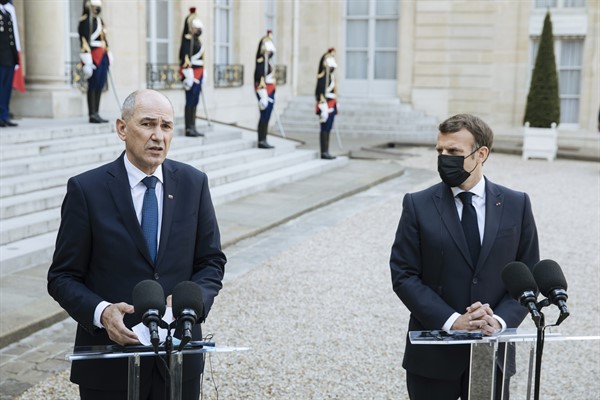As the world held its breath for the results of France’s presidential election on Sunday, another pivotal vote took place elsewhere in the European Union. Voters in Slovenia chose a new government, and there, as in France, the result was a harsh blow to the far right. An election in Slovenia, a small country of just 2 million people, may seem like a minor sideshow on the geopolitical stage, but its significance should not be underestimated.
It’s undeniable that a far-right victory in France could have proven calamitous for the EU and for the prospects of democracy around the world. But the results in Slovenia may ultimately tell us more about the future of this century’s relentless authoritarian drift. As a very young democracy, Slovenia’s democratic institutions do not have the deep roots and generations of democratic idealism that arguably helped France’s Emmanuel Macron fend off the challenge from far-right candidate Marine Le Pen. On the contrary, in the past couple of years, Slovenia has quietly become a battleground in the campaign by authoritarian leaders to expand their brand of illiberalism.
That makes it all the more impressive—and perhaps more consequential—that Prime Minister Janez Jansa and his Slovenian Democratic Party, or SDS from its Slovenian initials, were soundly defeated this weekend in an election described starkly by the opposition as a “referendum on democracy.” The issue on the ballot, more than any of the details or proposals from the nearly two dozen parties that competed, was whether Slovenia would continue to inch away from the liberal democratic principles that had guided it after its independence in 1991.

